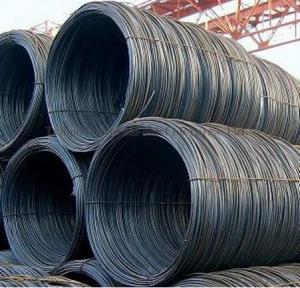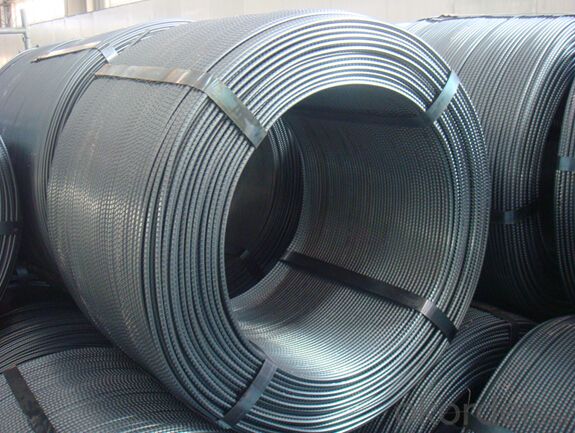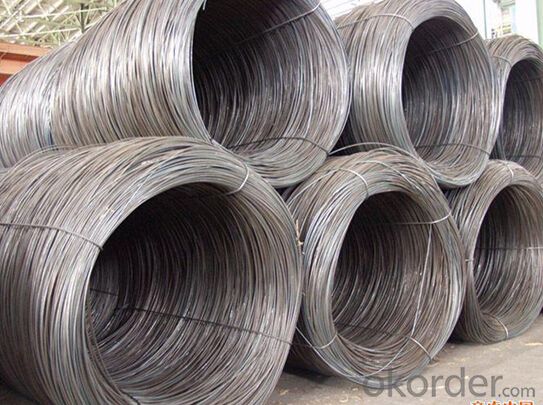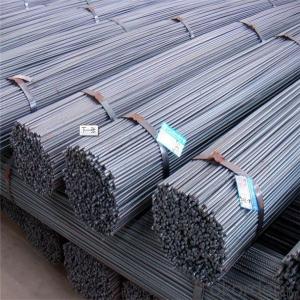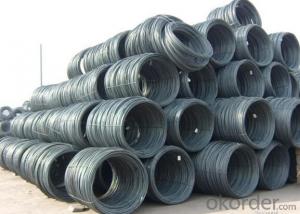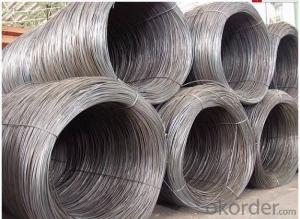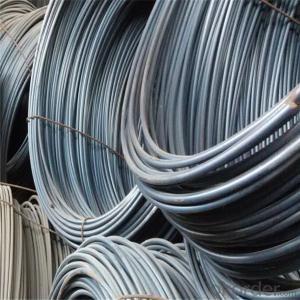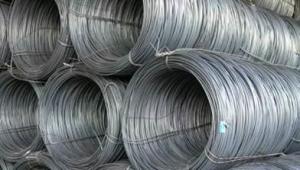HPB300 Building Wire Rod Price 6.5mm, 8mm ,10mm
- Loading Port:
- Tianjin
- Payment Terms:
- TT OR LC
- Min Order Qty:
- 3 m.t.
- Supply Capability:
- 10000 m.t./month
OKorder Service Pledge
Quality Product, Order Online Tracking, Timely Delivery
OKorder Financial Service
Credit Rating, Credit Services, Credit Purchasing
You Might Also Like
Specification
Type:
Carbon Steel,Spring Steel,Bearing Steel,Gear Steel,Deformed Steel,Stainless Steel,Alloy Steel
Shape:
Steel Coil,Steel Sheet,Steel Wire Rod,Steel Flat Bar,Steel Square Bar,Steel Angle,Steel Round Bar,Steel Billets
Technique:
Hot Rolled,Cold Rolled,Cold Drawn,ERW,Forged,Saw,Extruded,EFW,Spring
Surface Treatment:
Galvanized,Coated,Copper Coated,Color Coated,Oiled,Dry,Chromed Passivation,Polished,Bright,Black,PVDF Coated
Certification:
ISO,SGS,BV,IBR,RoHS,CE,API,BSI,UL
Thickness:
6.5mm-16mm
Width:
6.5mm-16mm
Length:
In coils
Outer Diameter:
6.5mm-16mm
Net Weight:
2m.t.
Packaging:
Seaworthy packaging
HPB300 Building Wire Rod Price 6.5mm, 8mm ,10mm
Detailed Information of the HPB300 Building Wire Rod Price 6.5mm, 8mm ,10mm
| Name | Hot Rolled High Carbon Wire Rod |
| Shape | Round Bar/Square Bar/Flat Bar/Plate/Wire |
| Standard | GB/ASTM/SAE/AISI/DIN/JIS/EN/BS |
| Surface Treatment: | Black/Peeling/Polished/Machined |
| Delivery Condition: | Hot Rolled or Forged/Peeled or Black Surface |
| Test | SGS/UT 100% Elements Testing |
| Certificate: | ISO/Mill Certificate |
| Service: | 24 hours online service / |
| more than 20 years trading and manufacture | |
| Quality Assurance: | the third party inspection, such as SGS, BV, TUV…etc. is acceptable |
| Packaging Details: | Seaworthy Packaging or as per customer's packing instruction |
Chemical Composition of the HPB300 Building Wire Rod Price 6.5mm, 8mm ,10mm
| Grade | Chemical Composition(%) | |||||
| C | Mn | Si | S | P | B | |
| SAE1008 | 0.1max. | 0.3~0.50 | 0.15max | 0.050max | ≤0.040 | >0.0008 |
| Mechanical properties | ||||||
| Yield strength(N/mm2) | Tensile strength(N/mm2) | Elongation(%) | ||||
| 250-280 | 350-380 | ≥32 | ||||
Company Introduction the HPB300 Building Wire Rod Price 6.5mm, 8mm ,10mm
CNBM International Corporation is the most import and export platform of CNBM group(China National Building Material Group Corporation) ,which is a state-owned enterprise, ranked in 270th of Fortune Global 500 in 2015.
With its advantages, CNBM International are mainly concentrate on Cement, Glass, Iron and Steel, Ceramics industries and devotes herself for supplying high quality series of refractories as well as technical consultancies and logistics solution.
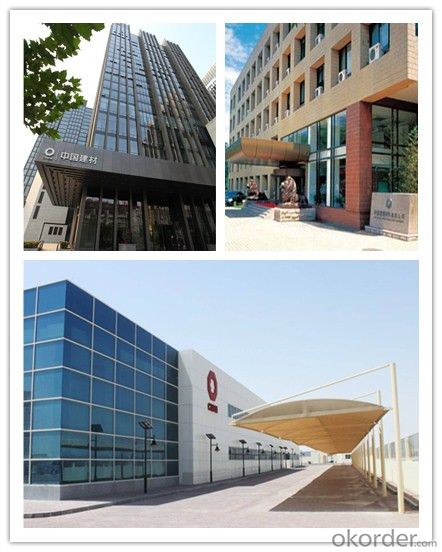
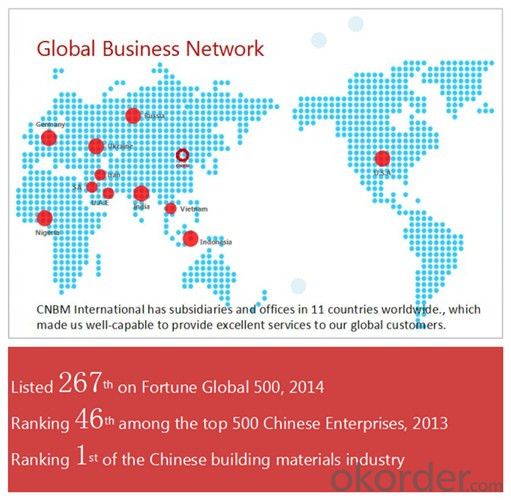
| After-sale service | CNBM provides the services and support you need for every step of our cooperation. We’re the business partners you can trust; you can relax and get on with doing business. |
| For any problem, please kindly contact us at any your convenient time, we’ll reply you in our first priority within 24 hours | |
| Advantages | Industry experience over 20 years. |
| Shipment of goods -More than 70 countries worldwide. | |
| The most convenient transport and prompt delivery. | |
| Competitive price with best service. | |
| High technical production line with top quality products. | |
| High reputation based on best quality products. |
Packaging & Delivery the HPB300 Building Wire Rod Price 6.5mm, 8mm ,10mm
| Packaging Detail | Sea worthy packing /as per customer's packing instruction |
| Delivery Detail | 15 ~ 40 days after receiving the deposit |
Products Show
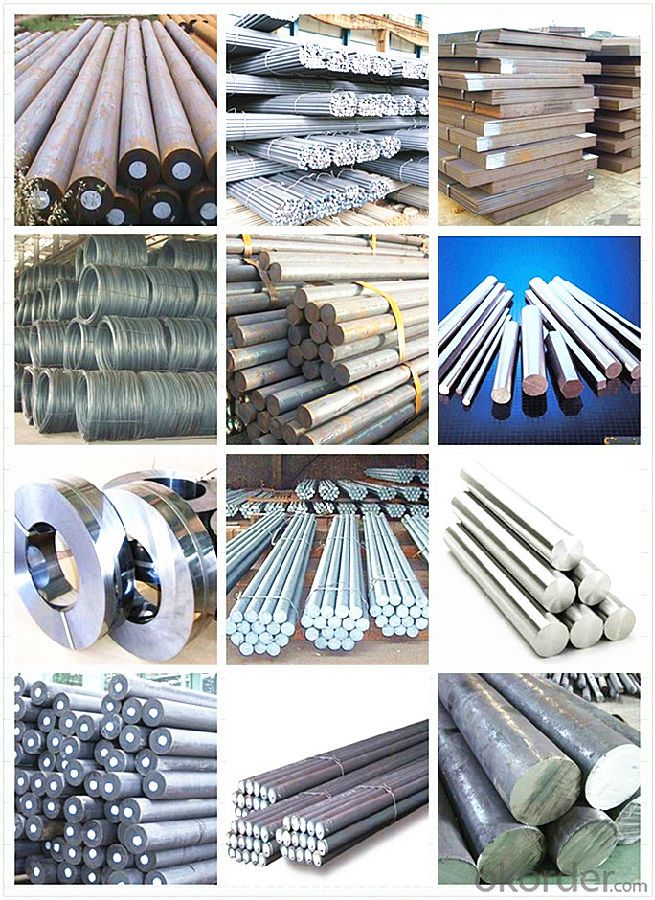
FAQ:
| Are you a trader or manufacturer? | Manufacturer |
| What’s the MOQ? | 3 metric ton |
| What’s your delivery time? | 15-35 days after downpayment received |
| Do you Accept OEM service? | Yes |
| what’s your delivery terms? | FOB/CFR/CIF |
| What's the Payment Terms? | 30% as deposit,70% before shipment by T/T |
| Western Union acceptable for small amount. | |
| L/C acceptable for large amount. | |
| Scrow ,Paybal,Alipay are also ok | |
| Why choose us? | Chose happens because of quality, then price, We can give you both. |
| Additionally, we can also offer professional products inquiry, products knowledge train (for agents), smooth goods delivery, excellent customer solution proposals. | |
| What's your available port of Shipment? | Main Port, China |
| What’s your featured services? | Our service formula: good quality+ good price+ good service=customer's trust |
| Where are your Market? | Covering more than 160 countries in the world |
- Q: How does special steel contribute to reducing material waste?
- Special steel contributes to reducing material waste through its exceptional properties and capabilities. Firstly, special steel is highly durable and has a longer lifespan compared to other materials, allowing for extended use before replacement or repair is needed. This reduces the amount of waste generated from frequent replacements. Additionally, special steel can be recycled and reused multiple times without losing its quality or performance. This promotes a circular economy by minimizing the need for raw materials extraction and reducing the overall waste generated from manufacturing processes. Furthermore, special steel's versatility and strength enable the creation of lighter and more efficient products, resulting in reduced material consumption. By utilizing special steel in various industries, we can significantly contribute to the reduction of material waste and promote a more sustainable approach to resource management.
- Q: What is the purpose of annealing in special steel production?
- The purpose of annealing in special steel production is to improve the mechanical properties and overall quality of the steel. Annealing is a heat treatment process in which the steel is heated to a specific temperature and then slowly cooled, typically in a controlled atmosphere. This process helps to relieve any internal stresses or strains that may have developed during previous manufacturing processes such as rolling or forging. During annealing, the steel's microstructure undergoes changes, resulting in a more refined and homogeneous material. The process allows for the redistribution of atoms, which helps to eliminate defects, improve grain structure, and enhance the steel's toughness, ductility, and machinability. Annealing also helps to reduce the hardness of the steel, making it easier to work with and shape. It can also improve the steel's resistance to cracking and enhance its resistance to corrosion or other environmental factors. Additionally, annealing can help to achieve desired physical properties such as increased hardness or improved magnetic properties in certain special steel alloys. Overall, the purpose of annealing in special steel production is to optimize the steel's properties and ensure it meets the specific requirements of its intended application, whether it be in industries such as automotive, aerospace, or manufacturing.
- Q: How is high-temperature steel used in the production of furnace components?
- High-temperature steel is extensively used in the production of furnace components due to its exceptional heat resistance. It allows furnace components to withstand the extreme temperatures and harsh conditions encountered during the heating process. This steel is specifically designed to maintain its strength, shape, and structural integrity even at elevated temperatures, ensuring the longevity and efficiency of furnace operation.
- Q: How is duplex stainless steel used in the oil and gas industry?
- Duplex stainless steel is commonly used in the oil and gas industry due to its unique combination of strength, corrosion resistance, and cost-effectiveness. It is utilized in various applications such as pipelines, offshore platforms, and equipment for drilling, extraction, and refining processes. Its resistance to corrosion and high mechanical strength make it suitable for withstanding harsh operating conditions, including exposure to corrosive drilling fluids and high-pressure environments. Overall, duplex stainless steel plays a crucial role in ensuring the integrity and reliability of oil and gas operations.
- Q: How does special steel contribute to the aerospace material weight reduction?
- Special steel contributes to aerospace material weight reduction through its unique properties and characteristics. Special steel alloys, such as high-strength low-alloy (HSLA) steels, offer a combination of strength, durability, and lightness that makes them ideal for aerospace applications. These steels are engineered to possess high strength-to-weight ratios, meaning they provide exceptional strength while being relatively lightweight. By using special steel in the construction of various components and structures in aircraft, the overall weight of the aircraft can be significantly reduced. This reduction in weight leads to improved fuel efficiency, increased payload capacity, and enhanced maneuverability, all of which are critical factors in aerospace engineering. Therefore, special steel plays a vital role in helping to achieve weight reduction objectives in the aerospace industry.
- Q: What are the main factors affecting the creep rupture strength of special steel?
- The main factors affecting the creep rupture strength of special steel can be categorized into several key parameters. 1. Temperature: Creep rupture strength is highly dependent on the temperature at which the steel is operating. Higher temperatures can significantly reduce the creep rupture strength of special steel due to the increased atomic diffusion and dislocation movement, leading to accelerated deformation and eventual failure. 2. Time: Creep rupture strength is also influenced by the time duration of the applied load. Creep is a time-dependent phenomenon, meaning that the longer the steel is subjected to stress, the more likely it is to experience rupture. The relationship between time and creep rupture strength is typically described by a power law equation, where longer durations result in lower rupture strength. 3. Stress Level: The applied stress level is a critical factor affecting creep rupture strength. Higher levels of stress can cause faster deformation and reduce the time to rupture. Therefore, it is important to ensure that the stress level applied to special steel is within the acceptable range to maintain its desired creep rupture strength. 4. Microstructure: The microstructure of special steel plays a crucial role in determining its creep rupture strength. Factors such as grain size, grain boundary characteristics, and the presence of alloying elements can all influence the steel's resistance to creep deformation and rupture. Fine-grained microstructures with a high density of grain boundaries tend to exhibit better creep resistance and higher rupture strength. 5. Composition: The chemical composition of special steel can significantly impact its creep rupture strength. The addition of certain alloying elements, such as chromium, molybdenum, and vanadium, can enhance the steel's high-temperature strength and resistance to creep deformation. These elements form stable carbides, which impede the movement of dislocations and improve the material's creep rupture strength. 6. Heat Treatment: The heat treatment process used to modify the microstructure of special steel can also affect its creep rupture strength. Proper heat treatment can optimize the grain size, distribution of alloying elements, and overall microstructure, resulting in improved creep resistance and higher rupture strength. Overall, the main factors affecting the creep rupture strength of special steel include temperature, time, stress level, microstructure, composition, and heat treatment. Understanding and controlling these parameters is crucial in ensuring the desired performance and reliability of special steel in high-temperature and long-term applications.
- Q: What industries rely on special steel?
- Several industries heavily rely on special steel due to its unique properties and exceptional performance. One such industry is the automotive sector, where special steel is extensively used in the production of engine components, suspension systems, gears, and various other parts. The aerospace industry is another prominent user of special steel as it requires materials that can withstand high temperatures, extreme pressure, and provide excellent corrosion resistance. Special steel is also essential in the construction industry, particularly for the manufacturing of high-rise buildings, bridges, and infrastructure projects where strength, durability, and resistance to environmental factors are crucial. The energy sector, including oil and gas, relies on special steel for the production of pipelines, drilling equipment, and storage tanks, as it possesses excellent mechanical properties and can withstand harsh operating conditions. Other industries that heavily rely on special steel include manufacturing, machinery, defense, and tooling, where it is used for various applications such as molds, cutting tools, and machine components. Overall, special steel finds extensive usage in industries that demand superior performance, durability, and reliability in their products and equipment.
- Q: What are the applications of special steel in the renewable energy sector?
- Special steel plays a crucial role in the renewable energy sector by enabling the development and advancement of various technologies. One of the key applications of special steel in this sector is in the manufacturing of wind turbines. Wind turbine components such as towers, generator frames, rotor hubs, and bearings require high-strength, corrosion-resistant steel to withstand the harsh operating conditions, including strong winds and exposure to moisture. Special steel provides the necessary properties to ensure the longevity and reliability of wind turbines, thus contributing to the growth of wind energy. Moreover, special steel is extensively used in the construction of solar power plants. Solar panel frames, mounting structures, and support systems require steel with excellent structural integrity, durability, and resistance to environmental degradation. Special steel provides these qualities, ensuring the stability and performance of solar installations. In addition, special steel finds applications in the production of components for hydroelectric power plants. The construction of turbines, penstocks, and other hydraulic equipment demands steel with high tensile strength and resistance to corrosion caused by water and sediments. Special steel alloys possess these characteristics, making them ideal for hydroelectric power generation. Furthermore, special steel is utilized in the manufacturing of energy storage systems, such as batteries and fuel cells. These systems often require steel with exceptional conductivity, corrosion resistance, and mechanical strength to ensure efficient and reliable energy storage. Special steel alloys can meet these requirements, making them suitable for use in renewable energy storage technologies. In summary, special steel plays a vital role in the renewable energy sector by offering the necessary properties for the manufacturing of wind turbines, solar power plants, hydroelectric power plants, and energy storage systems. Its high-strength, corrosion-resistant, and durable characteristics enable the development of efficient and reliable renewable energy technologies, contributing to the sustainable energy transition.
- Q: What is the impact of high temperature on the mechanical properties of special steel?
- High temperature has a significant impact on the mechanical properties of special steel. When exposed to high temperatures, special steel may undergo a phenomenon called thermal softening, where its mechanical strength decreases. This is primarily due to the reduction in the material's yield strength and hardness at elevated temperatures. One of the key effects of high temperature on special steel is the reduction in its ability to resist deformation. At elevated temperatures, the steel becomes more ductile, meaning it is more prone to elongation and plastic deformation. This increase in ductility can result in a decrease in the material's ability to maintain its shape and integrity under load, which can lead to distortion, warping, or even failure of the component. Furthermore, high temperatures can also cause changes in the microstructure of special steel. For instance, prolonged exposure to elevated temperatures can lead to the formation and growth of grain boundaries, which can weaken the material's mechanical properties. Additionally, high temperature can promote the diffusion of impurities or alloying elements within the steel, altering its chemical composition and potentially affecting its mechanical behavior. Another consequence of high temperature on special steel is the reduction in its resistance to corrosion and oxidation. At elevated temperatures, the steel is more susceptible to oxidation, which can result in the formation of scales or even complete material degradation. This can compromise the steel's mechanical properties, such as its strength and toughness. In conclusion, high temperature has a detrimental impact on the mechanical properties of special steel. It reduces the material's strength, increases its ductility, alters its microstructure, and decreases its resistance to corrosion and oxidation. Therefore, it is crucial to consider the effects of high temperature when designing and selecting special steel for applications that involve exposure to elevated temperatures.
- Q: What are the different methods for tempering special steel?
- There are several methods for tempering special steel, each with its own advantages and considerations. Some of the common methods used for tempering special steel include: 1. Air Tempering: This method involves heating the steel to a specific temperature and then allowing it to cool in still air. Air tempering is often used for low alloy steels and results in a uniform hardness throughout the steel. 2. Oil Tempering: In this method, the steel is heated to a specific temperature and then quenched in oil to cool it rapidly. Oil tempering is commonly used for tool steels as it provides a good balance between hardness and toughness. 3. Water Tempering: Similar to oil tempering, water tempering involves quenching the steel in water after heating it to a specific temperature. This method provides a higher rate of cooling and results in a harder steel, but it may also lead to increased brittleness. 4. Salt Bath Tempering: In this method, the steel is immersed in a molten salt bath at a specific temperature. The salt bath provides a more controlled and uniform heat transfer, resulting in a consistent hardness throughout the steel. 5. Cryogenic Tempering: Cryogenic tempering involves cooling the steel to extremely low temperatures, often below -100°C (-148°F), using liquid nitrogen or helium. This method helps to further reduce residual stresses and increase the wear resistance of the steel. It is important to note that the specific method chosen for tempering special steel depends on various factors, including the type of steel, desired hardness, intended application, and the desired balance between hardness and toughness. It is crucial to follow proper heat treatment guidelines and consult with experts to ensure the best results for a specific steel alloy.
Send your message to us
HPB300 Building Wire Rod Price 6.5mm, 8mm ,10mm
- Loading Port:
- Tianjin
- Payment Terms:
- TT OR LC
- Min Order Qty:
- 3 m.t.
- Supply Capability:
- 10000 m.t./month
OKorder Service Pledge
Quality Product, Order Online Tracking, Timely Delivery
OKorder Financial Service
Credit Rating, Credit Services, Credit Purchasing
Similar products
Hot products
Hot Searches
Related keywords
